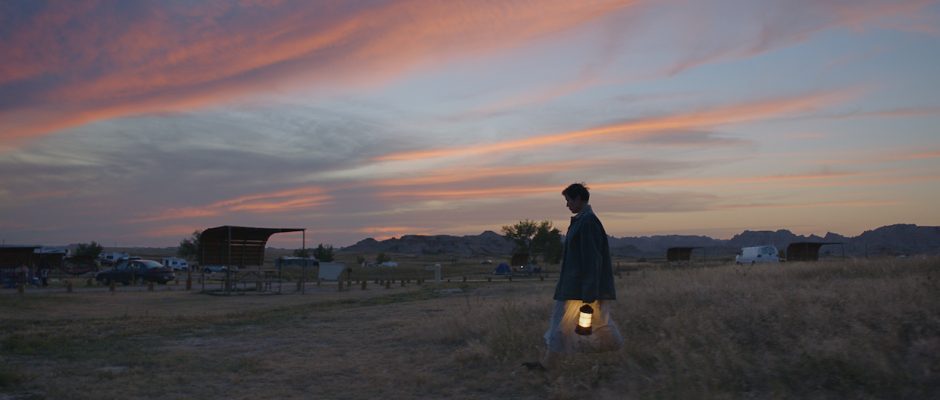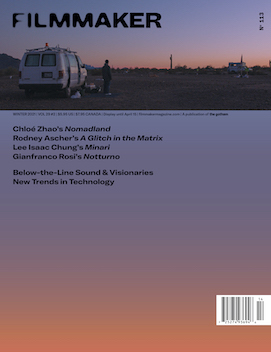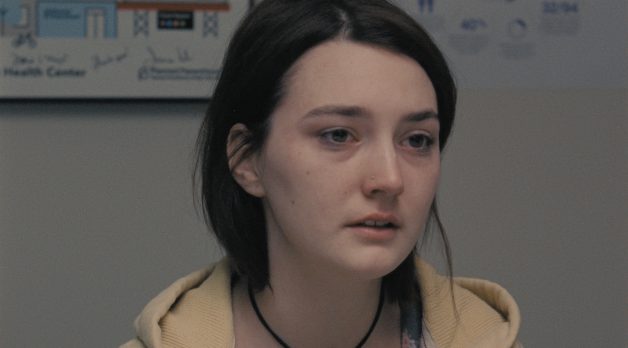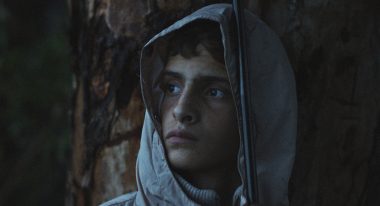Winter 2021

Post Empire
Empire, Nevada, “felt like a town suspended in the 1950s, as if the postwar economy had never ended,” writes Jessica Bruder in her nonfiction book, Nomadland: Surviving America in the Twenty-First Century. The small mining town consisted of four main roads, lined with homes populated by the workers of United States Gypsum, the manufacturer of Sheetrock. Subsidized rents were as low as $250 a month, the company covered TV and internet and, as one resident told Bruder, there were “no gangs, no sirens, no violence.” But economic forces caught up with Empire. In 2011, U.S. Gypsum, a company with a […]

Features

Sundance Hits and Misses, Pandemic Edition
Yes, 2020 sucked. The worst year of our lives finally came to an end, and most independent films and filmmakers, like just about everything and everyone else, suffered. Grand Jury Prize winners were delayed, critics’ favorites were lost and buzzworthy breakouts, briefly the talk of Park City, remained in limbo, waiting for some nebulous future release date when movie theaters might re-open and vaccinated audiences might attend them. Normally, you could look back at a year’s worth of top Sundance titles, examine what became of them in distribution—as Filmmaker usually does—and glean some takeaways about the state of the marketplace. […]
-
 Uprooted: Writer/Director Lee Isaac Chung on Minari
Uprooted: Writer/Director Lee Isaac Chung on Minari
The following interview appears in Filmmaker‘s current Winter ’21 print edition and, a day after Minari won the Golden Globe for Best Foreign Language Film, appears online for all readers for the first time. “There’s a difference between something having happened or something being true,” says writer/director Lee Isaac Chung about the interplay between memory and creation that graces his fourth dramatic feature, Minari. Based on the filmmaker’s childhood—his family moved to the South, where his father hoped to develop a farm—Minari captures a time of familial change and uncertainty with seemingly effortless poetry and wonder. It’s the early 1980s […]
-
 Technology Tailwinds — Where Are They Taking Us?
Technology Tailwinds — Where Are They Taking Us?
The following article was originally published in Filmmaker‘s Winter, 2021 edition. Digital technologies, incessantly lurching forward, are the ground we filmmakers stand on. No wonder we’re often unsteady on our feet. The pandemic has only become an accelerant. Although FaceTime and Skype were around awhile before both became verbs, it took the exigencies of the pandemic to flood our lives with Zoom calling, a digital convenience that has reshaped our relationship to proximity, travel and geography. Just ask Joe Biden. Doesn’t every production meeting now take place on Zoom? Production practices with renewed COVID relevance include use of zooms instead […]
-
 The Other Horror in Zombie Movies
The Other Horror in Zombie Movies
The asymmetries of combat in a zombie movie are unlike any other: One must shoot to kill because only one side fights—the other side is merely hungry. The fate of humanity hinges on an efficiently delivered death blow. Characters can outrun the monsters or grab a knife in the kitchen for self-defense. Or, if the movie was made in America, there’s probably a gun. Only one side can handle tools. It is right there on the movie posters in which actors typically appear with their primary weapons. Brad Pitt has an assault rifle on the World War Z (2013) poster, […]
Other articles
- A Question of Empathy: Viktor Kossakovsky on Gunda
- The Great Acceleration
- Last Call: Writer/Director Emerald Fennell on Promising Young Woman
- Render Time: Director Penny Lane Talks with A Glitch in the Matrix Director Rodney Ascher about His Reality-Questioning Documentary
- Dressing for the Extremes: Costume Designer Alexandra Byrne on Emma.
- A Matter of Balance
- Liberties in the Room
- The Doors of Our Mind: Director Florian Zeller on Memory, Mystery and The Father
-
 Showing the Work: On Frederick Wiseman Subject Marty Walsh, Now the Biden Administration’s Secretary of Labor
Showing the Work: On Frederick Wiseman Subject Marty Walsh, Now the Biden Administration’s Secretary of Labor
If you live outside New England, and if you saw the movie, Frederick Wiseman’s City Hall (2020) was probably your introduction to Boston Mayor Marty Walsh, recently nominated to serve as Secretary of Labor in the Biden administration. And it’s a sustained introduction at that. Onscreen for about 45 of the film’s 272 minutes, Walsh is the living center of City Hall’s structure. Wiseman returns to his prepared remarks and public appearances like a buffer between less formal scenes of office talk and offsite labor, framing the mayor kind of like the loudspeaker in M*A*S*H (1970)—that is, if it had […]
-
 The Places Left Behind
The Places Left Behind
Gianfranco Rosi’s nonfiction films are unified by their (often solo shooter) director’s precise framing. With images so strongly composed, the films’ status as vérité documentation has raised, if not controversy, at least questions about judgment, overaestheticization and potentially trivializing endangered subjects. That’s especially true of Rosi’s latest, Notturno, filmed over three years across the borders of Iraq, Kurdistan, Syria and Lebanon. From the opening shot, capturing with geometrical precision a group of soldiers running laps, Notturno elides names, battles and geographical precision into a group portrait of grief echoing across territorial demarcations. A site for war-scarred children in therapy, a […]
-
 My Job During a Pandemic: Producing 100+ DVDs and Blu-rays in 2020
My Job During a Pandemic: Producing 100+ DVDs and Blu-rays in 2020
When I left Kino Lorber’s office on Friday, March 13th, I was expecting to return on Monday. I was wrapping up the DVD and Blu-ray of Jia Zhangke’s I Wish I Knew (2010), getting final proofs of Adam Nayman’s booklet essay and waiting for the test molds (the final check disc the replicator sends for approval before the title goes into manufacturing) to come in. But then the lockdown hit, and the scramble to improvise and adapt to the situation. One of my colleagues lives nearby our office, so he shipped the I Wish I Knew test molds to our […]
Also: Moving Through the Frame On the Beat Advance Team Echoes From the Past Voices in the Room Arizona Dreams of Justice Editor’s Letter
